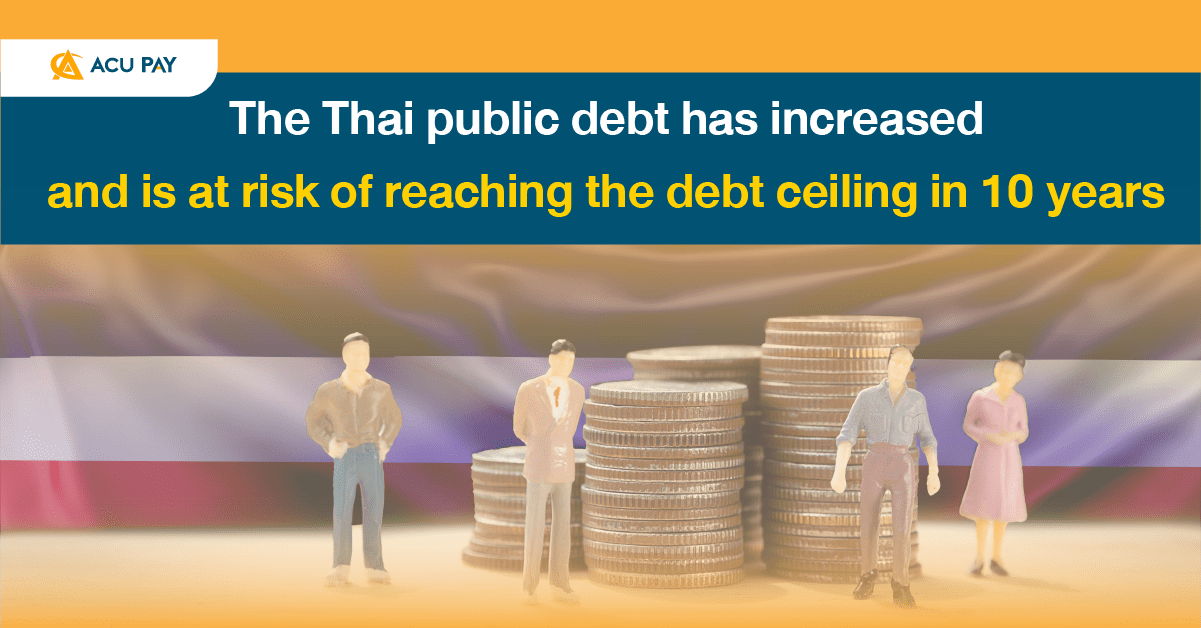

The “public debt problem” has become a worrying problem for the entire Thai nation. Last month, research analyzed the trend that Thailand will have a chance of touching the ceiling of public debt of 70% to GDP within 10 years.
Last month, KKP Research by Kiatnakinpat Financial Business Group released a study on the Thai public debt problem that the Thai government will have to face more challenges due to rising debt levels after the COVID-19 crisis and structural fiscal deficits over the past 15 years, which are likely to worsen with rising interest rates and aging society. In addition, Thailand’s economic growth potential is likely to continue to decline.
According to KPP Research, the Thai government has had a ‘structural deficit’ or income is less than expenditure for more than 15 years, with an average annual fiscal deficit of 2.8 % of GDP and Thai public debt growing by 7-8 % annually.
There are three important factors that cause Thailand to have public debt problems:
Past experience in many countries indicates that fiscal management and failure to resolve serious problems will result in high public debt and could affect the economy in three ways:
1. Fiscal policy execution capability (fiscal space) has decreased
Thailand’s public debt has never dropped to a pre-crisis level. When compared to the COVID period, the government has incurred a debt of nearly 20% of GDP, which poses a risk that the government will not be able to fully support the economy if any crisis occurs in the future.
2. The government’s borrowing cost may rise
Due to the decrease in credibility, if the government creates high debts, spends excessively, and does not have clear plans to increase fiscal capacity, investors may seek higher returns to offset the risk premium.
3. The outflow of foreign capital, including domestic capital
The depreciation of the currency and rising inflation, particularly in countries with high foreign-denominated loans and countries that rely heavily on imports.
KKP Research suggests that although they can help stimulate the economy in the short term with subsidies, it will create long-term burdens for the state such as fiscal burden and public debt, making it more difficult to reduce public debt in the future.
KKP Research has calculated that implementing this subsidy policy will result in the public debt level reaching 70% within less than 10 years.
It can be seen that the Thai government is facing more challenges in solving the public debt problem. Apart from rising debt levels after the COVID-19 crisis and aging society, Thailand’s continued fiscal deficit will likely continue to worsen the public debt problem.
With all of these challenges, the new government must find ways to reduce or control public debt under the new ceiling, while also seeking to invest money in stimulating the economy, making it sustainable, and reducing its dependence on borrowing.
Ultimately, the problem of public debt may come sooner than expected, and the solution may take longer than many people expect.